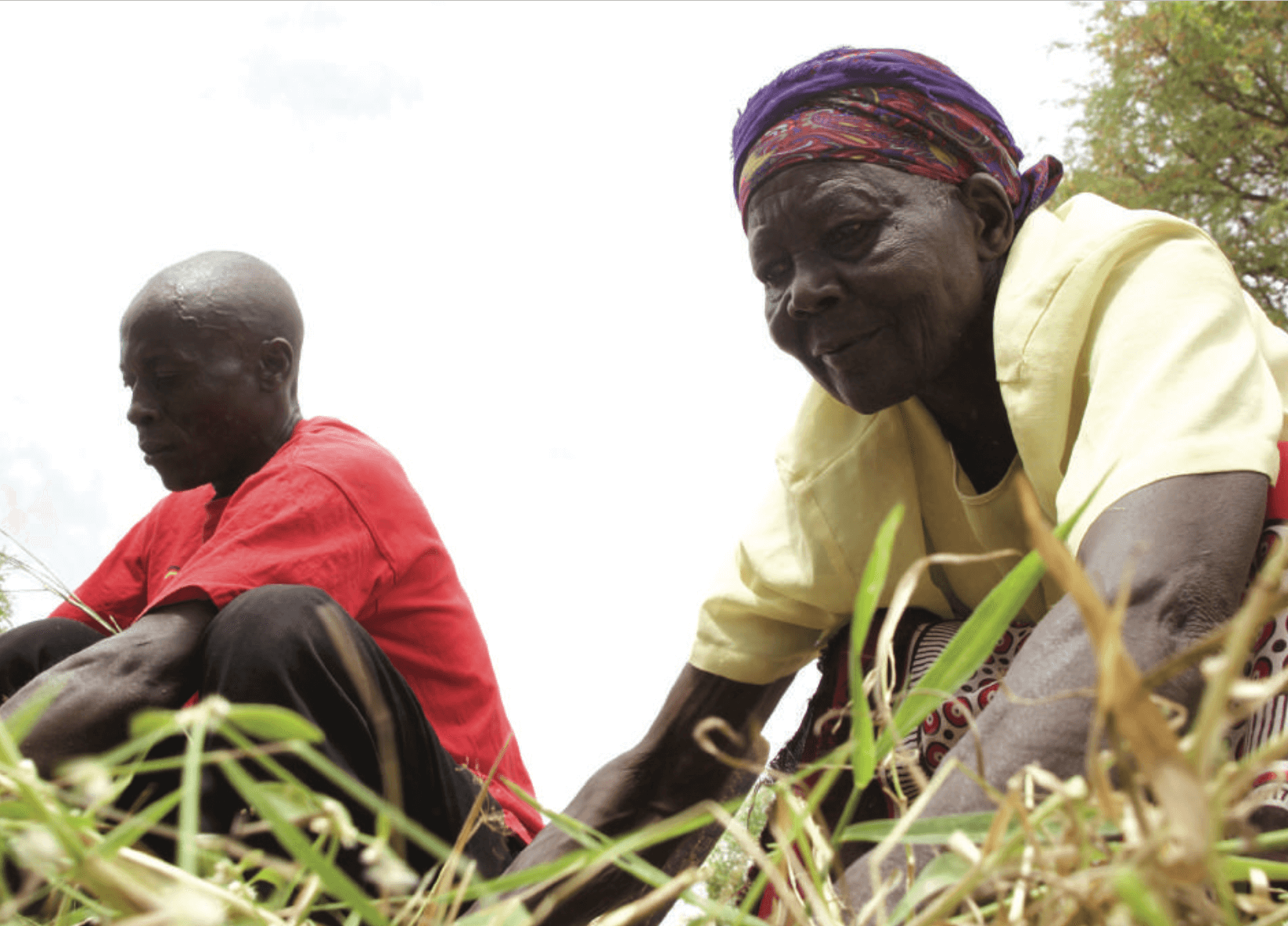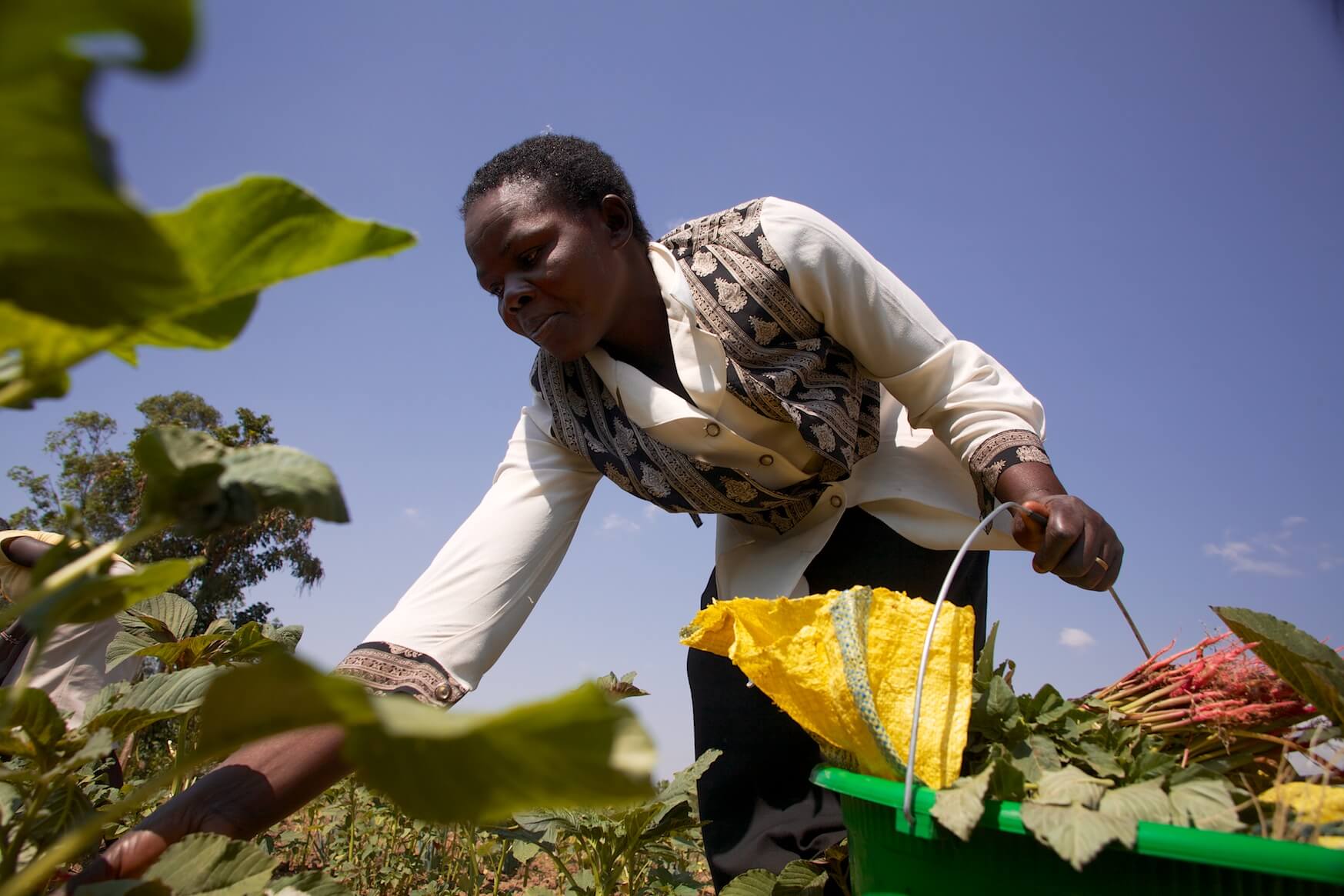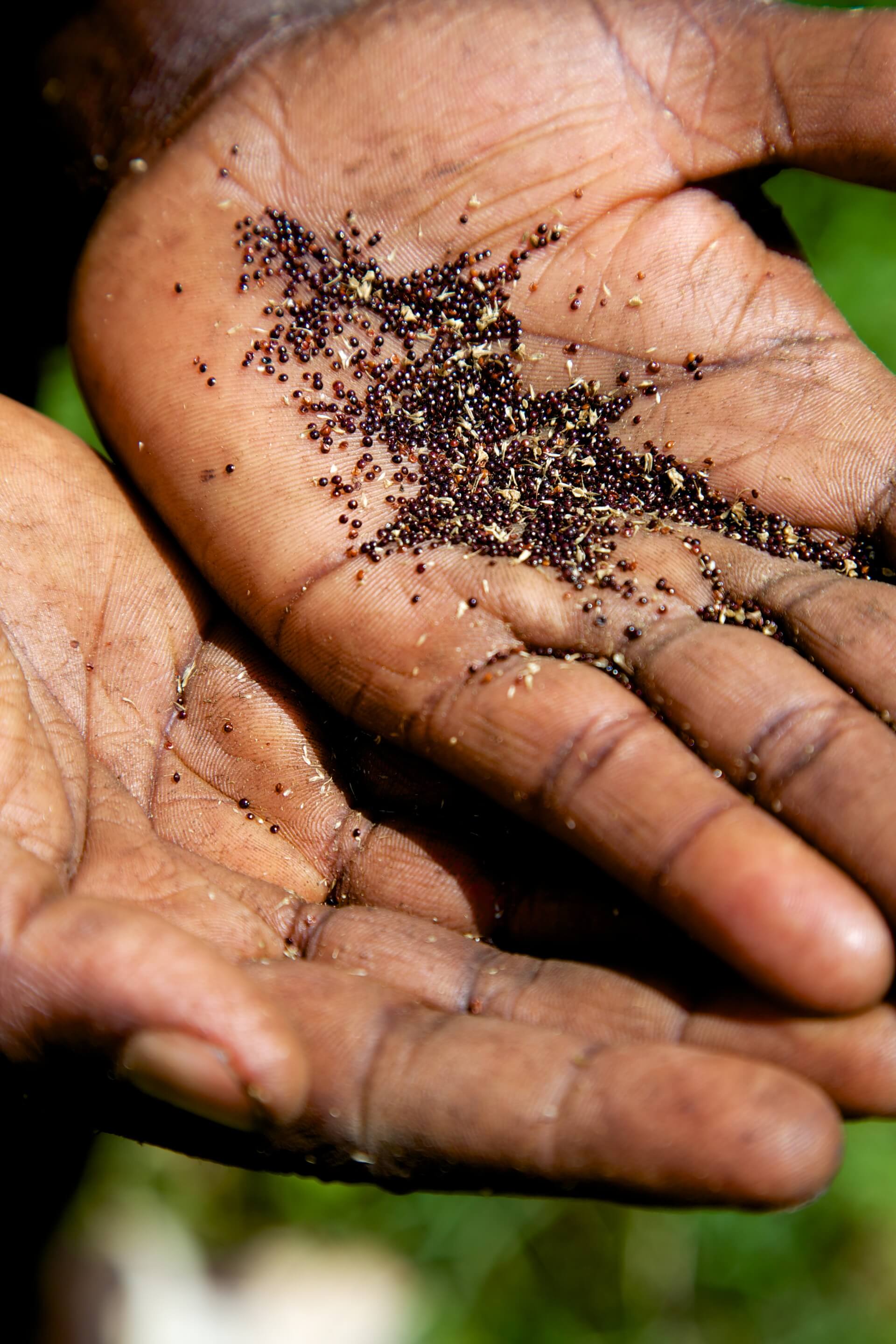In rural Siaya, Kenya, water erosion combined with the intensive usage of inorganic fertilisers has resulted in overall poor soil fertility. This has led to low crop productivity and farm yields, especially of maize and other food crops. Farmers in Siaya are therefore often caught in a vicious cycle of decreasing soil fertility which necessitates the buying of expensive chemical fertiliser to improve crop yields, but which, in the long run will degrade their soil even further. Low crop yields directly result in lack of food and undernourishment for subsistent farming households.
In order to reverse the impact of detrimental farming practices Ace Africa has implemented a number of Community Livelihoods Programmes which, not only improve nutrition and income, but also have a positive impact on the environment.
 During 2016, with the support of GiZ, Ace implemented a Community Livelihoods Programme training communities to make organic compost, which they use themselves and sell to other community members replacing the use of environmentally damaging chemical fertiliser. The organic compost has a number of benefits including improving soil structure; increasing soil water holding capacity; increasing nutrient retention and nutrient availability which helps improve plant resistance to disease and finally, increasing carbon sequestering and mitigating climate change.
During 2016, with the support of GiZ, Ace implemented a Community Livelihoods Programme training communities to make organic compost, which they use themselves and sell to other community members replacing the use of environmentally damaging chemical fertiliser. The organic compost has a number of benefits including improving soil structure; increasing soil water holding capacity; increasing nutrient retention and nutrient availability which helps improve plant resistance to disease and finally, increasing carbon sequestering and mitigating climate change.

This year Ace Africa have been awarded another grant from Giz which will enable Ace to train community members in Conservation Agriculture, an advanced farming technique that follows three principles including soil cover, minimum tillage and crop rotation. The approach involves minimal ploughing of land, planting of seeds directly onto soil and the covering of the land with mulch (dried plant matter which reduces water evaporation and increases soil fertility). Plant types are then rotated around the plot of rounds after growing seasons. These techniques reduce pest and disease problems, reduce greenhouse gas emissions, reduce use of chemical fertiliser due to improving soil fertility and crop yields, thus in the long run improving food and environmental security.
These sustainable farming techniques, improve environmental quality and the ability of communities to utilise and live in harmony with the land for generations to come and mitigating the effects of climate change.
